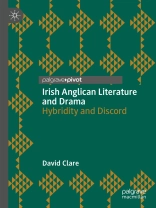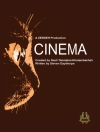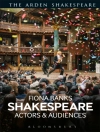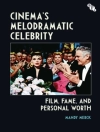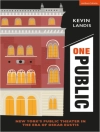This book discusses key works by important writers from Church of Ireland backgrounds (from Farquhar and Swift to Beckett and Bardwell), in order to demonstrate that writers from this Irish subculture have a unique socio-political viewpoint which is imperfectly understood. The Anglican Ascendancy was historically referred to as a “middle nation” between Ireland and Britain, and this book is an examination of the various ways in which Irish Anglican writers have signalled their Irish/British hybridity. “British” elements in their work are pointed out, but so are manifestations of their proud Irishness and what Elizabeth Bowen called her community’s “subtle … anti-Englishness.” Crucially, this book discusses several writers often excluded from the “truly” Irish canon, including (among others) Laurence Sterne, Elizabeth Griffith, and C.S. Lewis.
Table des matières
1. Introduction.- 2. Elizabeth Griffith: Celebrating and Extending the Irish Anglican Dramatic Tradition.- 3. The Portraits of the English in the Work of Dion Boucicault, Bram Stoker, and Erskine Childers.- 4. Charlotte Brooke’s Impact on Ascendancy Women Writers from Maria Edgeworth to Lady Gregory.- 5. C.S. Lewis and the Irish Literary Canon.- 6. Gradations of Class Among Irish Anglicans in Leland Bardwell’s Girl on a Bicycle.
A propos de l’auteur
David Clare is Lecturer in Drama and Theatre Studies at Mary Immaculate College, University of Limerick, Ireland. He previously held two IRC-funded postdoctoral fellowships at NUI Galway, Ireland. His books include the monograph
Bernard Shaw’s
Irish Outlook (2016) and the edited collection
The Gate Theatre, Dublin: Inspiration and Craft (2018).
